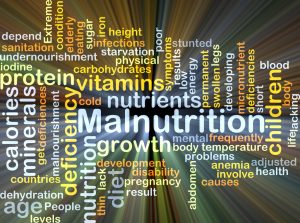
I was really concerned about whether my breastmilk had all the nutrients it needed when my daughter was sick for the 3rd time in four months earlier this year. My husband and I had concerns about giving her vaccines if her immune system was struggling so hard to fight illness. My husband told me to research nutrition and breastmilk and write a paper we could give to our pediatrician about why my milk may be deficient and therefore Jessica was probably deficient because that was all she was eating at the time. Her possible deficiencies were affecting her immune system.
I had my gallbladder removed when I was twenty-nine years old and have had a decline in my digestion ever since. The gallbladder stores bile and is secreted in response to fatty foods. If it is missing, bile continuously gets secreted from the liver irritating the digestive tract and diminishing the digestion of fat soluble foods.
I started looking up research studies on PubMed. There was one research study which was loaded with relevant information on this subject, especially fat-soluble vitamin A. The title is, “Lack of micronutrients hits mothers and infants hardest from the Safe Mother 1994 Jul-Oct and it said,
“People most affected by deficiencies in micronutrients (e.g., iron, vitamin A, and iodine) are pregnant women and children. Vitamin A deficiency suppresses the body’s ability to fight infection, induces eye disease, and may result in blindness. A lactating mother’s need for vitamin A is 30-60% greater than when she was pregnant. If a mother has enough vitamin A reserves the breastfed child receives enough vitamin A.”
The article goes on to say that extra iron is needed during pregnancy to build maternal blood volume and diet alone does not satisfy iron and folic acid needs during the second and third trimesters of pregnancy. It also talks about the need for iodine and how that deficiency causes more stillbirths, miscarriages, and low birth weight infants.
The bottom line from that study is that mothers milk is affected by mother’s intake and deficiency. I did have deficiencies immediately after birth for multiple reasons but as Jessica grew her needs grew and I needed to supplement more but I was not doing that at that time. When Jessica was 10 months old a lab drawn from Genova Diagnostics said I was deficient in vitamin A, vitamin C, vitamin E, a-Lipoic acid, riboflavin B2 and borderline on B1, B3, B7, Zinc, magnesium, and manganese. If I was deficient Jessica most likely was too.
Another article I found on PubMed entitled “Maternal micronutrient malnutrition: effects on breast milk and infant nutrition, and priorities for intervention from SCN News 1994 said,
“Lactating women are more likely to experience micronutrient deficiencies than a shortage of dietary energy or protein. Micronutrient deficiencies are also more likely to affect breastmilk composition and the development and nutritional status of breastfeeding infants. Dietary interventions or supplementation can increase the secretion of many of these nutrients in breast milk and improve infant nutritional status.”
The article goes on to say that breast milk deficiency is most affected by water soluble vitamins vs. fat soluble vitamins but unaffected by mineral status. I have done vitamin C flushes where you take large amounts of vitamin C until you have diarrhea and taken high doses of magnesium for constipation
References
https://www.ncbi.nlm.nih.gov/pubmed/12345821
https://www.ncbi.nlm.nih.gov/pubmed/12288231